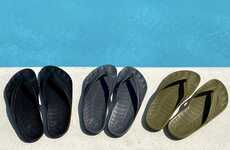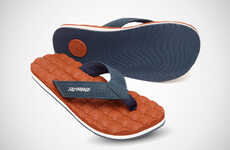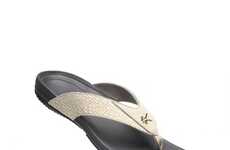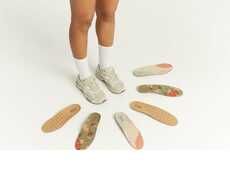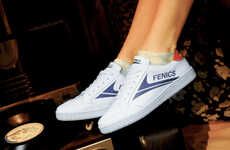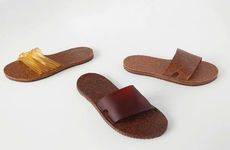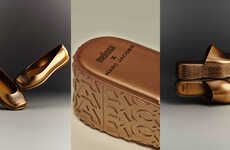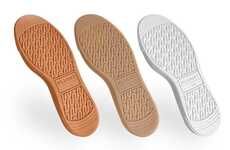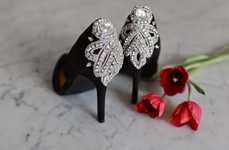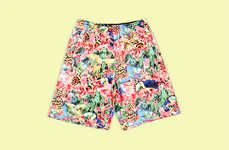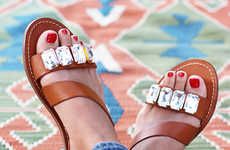
Feelgoodz Footwear Is Constructed Using Socially Responsible Methods
Sarah Moore — July 19, 2012 — Social Good
A good pair of flip flops is an essential summer wardrobe staple for most people and the Feelgoodz footwear line has committed to constructing warm-weather shoes that not only feel good but do good as well.
The company works on a triple bottom-line model that incorporates "People, Planet and Profit," by selling shoes that are both comfortable to wear and Eco-Friendly, while also generating revenue for the company. They are constructed using all natural rubber from Thailand, which the founder Kyle Berner discovered the benefits of when teaching English in the country.
The shoes become biodegradable in four or five years, meaning that once they wear out they can either be turned into compost or planted in a garden to absorb C02 from the air.
The company also limits emissions from importing its rubber from Thailand by purchasing in bulk and partners with retails who also follow a triple bottom-line business model.
Contact Information
Feelgoodz website
Feelgoodz on Facebook
Feelgoodz on Twitter
The company works on a triple bottom-line model that incorporates "People, Planet and Profit," by selling shoes that are both comfortable to wear and Eco-Friendly, while also generating revenue for the company. They are constructed using all natural rubber from Thailand, which the founder Kyle Berner discovered the benefits of when teaching English in the country.
The shoes become biodegradable in four or five years, meaning that once they wear out they can either be turned into compost or planted in a garden to absorb C02 from the air.
The company also limits emissions from importing its rubber from Thailand by purchasing in bulk and partners with retails who also follow a triple bottom-line business model.
Contact Information
Feelgoodz website
Feelgoodz on Facebook
Feelgoodz on Twitter
Trend Themes
1. Eco-friendly Footwear - Disruptive innovation opportunity: Develop sustainable and biodegradable materials for footwear to meet the growing demand for environmentally friendly products.
2. Triple Bottom-line Business Models - Disruptive innovation opportunity: Explore and implement business models that prioritize social and environmental impact, in addition to profitability.
3. Sustainable Supply Chain - Disruptive innovation opportunity: Create innovative strategies to reduce emissions and environmental impact throughout the supply chain, such as bulk purchasing and partnering with like-minded retailers.
Industry Implications
1. Footwear - Disruptive innovation opportunity: Integrate sustainable materials and production methods into the footwear industry to address consumer demands for eco-friendly products.
2. Retail - Disruptive innovation opportunity: Incorporate triple bottom-line business models into the retail industry to appeal to socially conscious consumers and differentiate from competitors.
3. Supply Chain Management - Disruptive innovation opportunity: Develop sustainable supply chain strategies and technologies to reduce emissions and environmental impact while maintaining efficient operations.
3.7
Score
Popularity
Activity
Freshness


